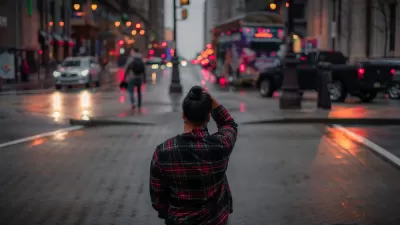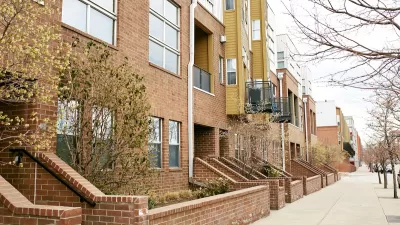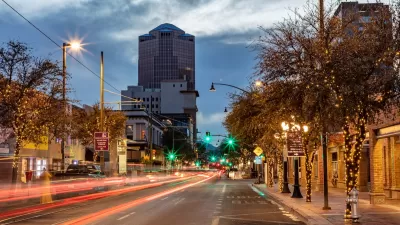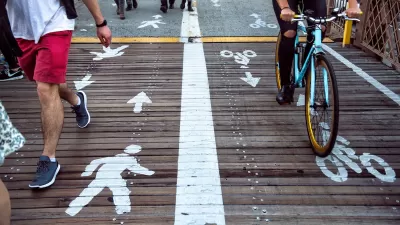American pedestrians are moving faster and spending less time connecting with other people when walking down city streets.

American pedestrians are spending less time hanging out on sidewalks and streets, according to a new study from the National Bureau of Economic Research.
As David Zipper explains in Bloomberg CityLab, the researchers used artificial intelligence to analyze video footage from 1980 and 2010, noticing that people walk faster and spent less time interacting than they used to. “They seemed to be having fewer of the informal encounters that undergird civil society and strengthen urban economies.”
While the analysis doesn’t explain why behavior patterns have changed, the researchers offered several possible explanations. “City dwellers might be having fewer social interactions of all kinds, a phenomenon that has been linked to rising rates of loneliness. And some of the pedestrians observed in 2010 could have been socializing remotely: By then, 80% of US adults had cellphones.”
People may also be using more commercial third spaces like coffee shops and bars to socialize, particularly in places where public space is not comfortable or inviting. This leads to people spending more time around people who are similar to them, sharing similar economic backgrounds and experiences.
For the researchers, the shift is troubling. “Beyond creating personal connections, human exchange fuels economic productivity as people figure out how to do their job more efficiently or find inspiration for a new venture. Benefits reverberate citywide, and even across society writ large.”
FULL STORY: What Happened to Hanging Out on the Street?

Trump Administration Could Effectively End Housing Voucher Program
Federal officials are eyeing major cuts to the Section 8 program that helps millions of low-income households pay rent.

Planetizen Federal Action Tracker
A weekly monitor of how Trump’s orders and actions are impacting planners and planning in America.

The 120 Year Old Tiny Home Villages That Sheltered San Francisco’s Earthquake Refugees
More than a century ago, San Francisco mobilized to house thousands of residents displaced by the 1906 earthquake. Could their strategy offer a model for the present?

HSR Reaches Key Settlement in Northern California City
The state’s high-speed rail authority reached an agreement with Millbrae, a key city on the train’s proposed route to San Francisco.

Washington State Legislature Passes Parking Reform Bill
A bill that would limit parking requirements for new developments is headed to the governor’s desk.

Missouri Law Would Ban Protections for Housing Voucher Users
A state law seeks to overturn source-of-income discrimination bans passed by several Missouri cities.
Urban Design for Planners 1: Software Tools
This six-course series explores essential urban design concepts using open source software and equips planners with the tools they need to participate fully in the urban design process.
Planning for Universal Design
Learn the tools for implementing Universal Design in planning regulations.
Ada County Highway District
Clanton & Associates, Inc.
Jessamine County Fiscal Court
Institute for Housing and Urban Development Studies (IHS)
City of Grandview
Harvard GSD Executive Education
Toledo-Lucas County Plan Commissions
Salt Lake City
NYU Wagner Graduate School of Public Service





























